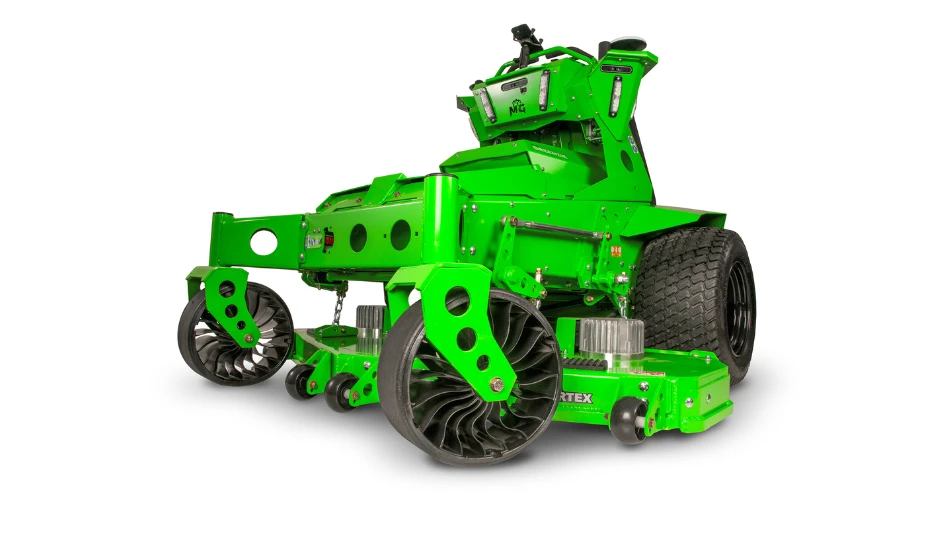LOGAN TOWNSHIP, N.J. – Mitsubishi Fuso Truck of America recently announced during the IAA Commercial Vehicles Show in Hannover, Germany, that it will start a small production run of vehicles for several markets around the world, including the USA. The company expects the first all-electric trucks to reach the U.S. in 2017.
To prove the value of an all-electric work truck, MFTA’s parent company conducted a field trial using eight prototype vehicles, with varied flatbed/stakebody and dry van bodies installed. These trucks were operated by fleet customers in Europe, where the vehicles are assembled. The fleet managers were asked to put the E-Cell trucks to use in routine service while Mitsubishi Fuso engineers closely monitored the vehicles’ performance and use profiles for a full year.
An analysis of the data revealed that the FUSO eCanter work trucks required an average of 47.6 kwh/62 miles (47.6 kwh/100 km), compared to an equivalent diesel-powered Canter’s average fuel consumption of 3.72 gallons/62 miles (14.08 liters/100 km). Calculation of actual cost savings in any particular region would require the use of the specific cost of diesel fuel and electricity rates in that region. Based on diesel fuel pricing and electricity costs in the European locations where the trucks were operated, the E-Cell trucks produced a cost savings of 64 percent over the one-year testing period.
Not only did the eight test vehicles produce impressive operating cost savings, but they also produced zero CO2 or other tailpipe emissions, and even delivered a 37-percent reduction in CO2 emissions compared to diesel-powered trucks, after accounting for emissions generated by the power plants creating the electricity needed to recharge the batteries.
In addition to in-depth performance data, the company elicited customer evaluations of the vehicles’ practicality, suitability for their specific operating requirements and their ease of use. Results have been quite positive, with all customers reporting that, when used as intended, the trucks performed well. Types of service included express package delivery and freight forwarding in urban environments, municipal refuse and public works service, and forestry service equipment and debris hauling.
For more information about Mitsubishi Fuso and its Canter work trucks, visit www.mitfuso.com.
To prove the value of an all-electric work truck, MFTA’s parent company conducted a field trial using eight prototype vehicles, with varied flatbed/stakebody and dry van bodies installed. These trucks were operated by fleet customers in Europe, where the vehicles are assembled. The fleet managers were asked to put the E-Cell trucks to use in routine service while Mitsubishi Fuso engineers closely monitored the vehicles’ performance and use profiles for a full year.
An analysis of the data revealed that the FUSO eCanter work trucks required an average of 47.6 kwh/62 miles (47.6 kwh/100 km), compared to an equivalent diesel-powered Canter’s average fuel consumption of 3.72 gallons/62 miles (14.08 liters/100 km). Calculation of actual cost savings in any particular region would require the use of the specific cost of diesel fuel and electricity rates in that region. Based on diesel fuel pricing and electricity costs in the European locations where the trucks were operated, the E-Cell trucks produced a cost savings of 64 percent over the one-year testing period.
Not only did the eight test vehicles produce impressive operating cost savings, but they also produced zero CO2 or other tailpipe emissions, and even delivered a 37-percent reduction in CO2 emissions compared to diesel-powered trucks, after accounting for emissions generated by the power plants creating the electricity needed to recharge the batteries.
In addition to in-depth performance data, the company elicited customer evaluations of the vehicles’ practicality, suitability for their specific operating requirements and their ease of use. Results have been quite positive, with all customers reporting that, when used as intended, the trucks performed well. Types of service included express package delivery and freight forwarding in urban environments, municipal refuse and public works service, and forestry service equipment and debris hauling.
For more information about Mitsubishi Fuso and its Canter work trucks, visit www.mitfuso.com.
Latest from Lawn & Landscape
- Connect, Control & Conserve with Horizon Technical Services
- Use Horizon's Parts Hotline
- How I built a Top 100 company
- Horizon’s Exclusive TurfGro Fertilizer
- Grow your business with mosquito control
- LandCare adds 2 branches in SoCal, promotes Aleman to branch manager
- Spray them away
- PERC helps debut propane direct-injection fuel system at ACT Expo 2025





